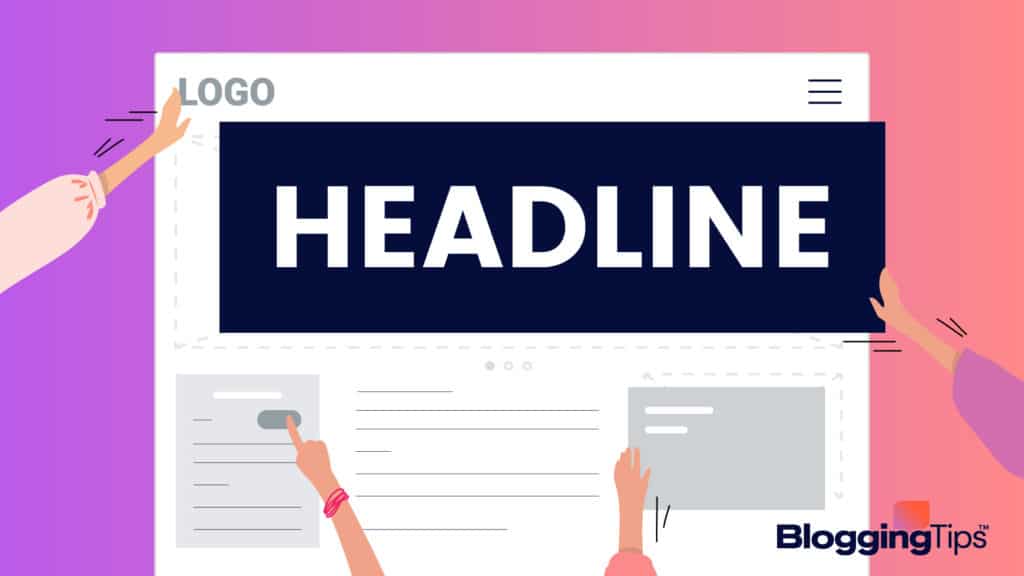
The Power of a Captivating Headline: Unveiling the Secrets Behind Effective Headlines
Definition of a Headline
A headline is a brief, attention-grabbing statement that summarizes the main point or focus of an article, blog post, news story, or advertisement. Think of it as the first impression you make at a party—it needs to be compelling enough to make people want to know more.
The Importance of Headlines
Headlines are crucial. Why? Because they are the gatekeepers of content. A good headline can significantly increase the likelihood of someone reading your article, while a bad one can turn readers away faster than you can say “boring.”
Types of Headlines
Different mediums require different types of headlines. Let’s break it down:
News Headlines
News headlines aim to inform. They are often straightforward, providing the essential information at a glance. For example, “Earthquake Shakes San Francisco.”
Blog Post Headlines
Blog post headlines need to be engaging and often include elements of curiosity or promise. Think along the lines of “10 Tips for a Perfect Vacation.”
Marketing Headlines
Marketing headlines are designed to sell. They need to grab attention and compel the reader to take action, such as “Get 50% Off Your First Order Today!”
Characteristics of Effective Headlines
Not all headlines are created equal. The best ones share certain characteristics:
Clarity and Precision
A headline should be clear and precise, leaving no doubt about what the reader can expect. Vague headlines are a surefire way to lose readers.
Emotional Appeal
Headlines that tap into emotions—be it joy, fear, excitement, or curiosity—tend to perform better. They resonate on a personal level, making the reader want to engage.
Relevance to Content
A headline should always be relevant to the content it introduces. Misleading headlines may draw initial clicks, but they will ultimately disappoint and alienate your audience.
Use of Keywords
In the digital age, using relevant keywords in your headlines is essential for SEO. Keywords help search engines understand what your content is about, improving its visibility.
Crafting the Perfect Headline
Creating the perfect headline is both an art and a science. Here are some tips to help you craft headlines that work:
Know Your Audience
Understanding your audience is key. What are they looking for? What kind of language do they respond to? Tailoring your headline to your audience’s preferences can make a huge difference.
Use of Power Words
Power words are words that evoke strong emotions or actions. Words like “amazing,” “free,” “secret,” and “proven” can make your headlines more compelling.
Keeping It Short and Sweet
Shorter headlines are generally more effective. Aim for a thekansaspost.com/ that is easy to read and quickly conveys the main point. Around 6-8 words is often ideal.
A/B Testing Headlines
Testing different headlines to see which performs better is a smart strategy. A/B testing allows you to experiment and find out what resonates most with your audience.
Common Mistakes in Headline Writing
Even seasoned writers can make mistakes with headlines. Here are some pitfalls to avoid:
Being Vague or Misleading
Headlines that are too vague or misleading can frustrate readers. Ensure your headline accurately reflects the content.
Overuse of Clickbait
Clickbait headlines might generate clicks, but they often lead to high bounce rates and a loss of trust. It’s better to be honest and provide real value.
Ignoring SEO Principles
Neglecting SEO in your headline writing can limit your content’s reach. Incorporate relevant keywords naturally to boost your content’s visibility.
Tools and Resources for Writing Headlines
Several tools and resources can help you craft better headlines:
Headline Analyzers
Tools like CoSchedule’s Headline Analyzer and Sharethrough’s Headline Analyzer can help you assess the effectiveness of your headlines based on various criteria.
SEO Tools
SEO tools such as Ahrefs and SEMrush offer insights into keyword performance and trends, helping you optimize your headlines for search engines.
Content Management Systems
Most content management systems (CMS) like WordPress offer plugins and built-in features that can help you optimize your headlines for readability and SEO.
Case Studies of Successful Headlines
Learning from others can be incredibly beneficial. Here are a couple of case studies:
Viral Headlines
Headlines like “This Simple Trick Will Save You Hours” have gone viral because they promise a clear benefit and spark curiosity.
Headlines That Increased Sales
Headlines such as “Limited Time Offer: Buy One Get One Free” are effective in increasing sales due to their sense of urgency and clear value proposition.
Conclusion
In the world of content, headlines reign supreme. They are the first impression and often the deciding factor in whether your content gets read or ignored. By understanding what makes a headline effective and avoiding common pitfalls, you can craft headlines that not only grab attention but also deliver on their promise.


:quality(70)/cloudfront-eu-central-1.images.arcpublishing.com/irishtimes/VFALXETQZFBF3LFL5XXHKMRKR4.jpg)